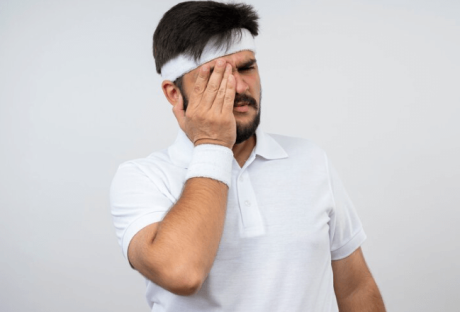Camp Lejeune, a sprawling military base nestled in Jacksonville, North Carolina, carries a legacy tarnished by a prolonged water contamination crisis.
Established in 1942, this bastion of military command housed Marines and their families. According to TIME Magazine, as many as 1 million people on the base unwittingly faced toxic chemical exposure between 1953 and 1987. The gravity of the situation came to light in 1982 when the Marine Corps discovered the presence of harmful compounds in the water supply.
In this guide, we will dive into the enduring legal complexities of Camp Lejeune’s water crisis. We will examine its origin, health ramifications, government recognition, ongoing lawsuits, and settlement options.
The Origin of the Crisis
Camp Lejeune’s water crisis unfolded through a combination of on-base incidents and off-base negligence. Trichloroethylene, perchloroethylene, benzene, and vinyl chloride seeped into the water supply, laying the foundation for severe health implications.
The genesis of Camp Lejeune’s water crisis can be traced back to a complex interplay of on-base incidents and off-base negligence. The contamination, however, was not merely an isolated incident but a result of a systemic failure in handling hazardous materials.
Understanding this systemic failure is crucial for assessing the liability of various entities involved and ensuring a comprehensive legal response. Addressing the systemic issues requires collaborative efforts from both military and civilian authorities.
Health Ramifications Linked to Contamination
Scientific investigations by the ATSDR have established a direct correlation between Camp Lejeune’s water and an array of health issues. As noted by the CDC, different diseases caused by exposure to Camp Lejeune’s contaminated water include multiple types of cancers and developmental disorders. It can also cause immune system disorders and neural tube defects.
Beyond the physical health consequences linked to Camp Lejeune’s water contamination, there exists a significant toll on mental health. Individuals exposed to these toxic chemicals not only grapple with the physical manifestations of diseases but also face profound psychological challenges.
The mental health aspect becomes an essential consideration in legal proceedings, highlighting the holistic impact of the crisis. Legal strategies must encompass mental health advocacy, recognizing the interconnected nature of physical and psychological well-being.
Government Recognition and Compensation Mechanisms
The recent enactment of the Honoring Our PACT Act of 2022 has paved the way for compensation. As per the VA, veterans and individuals exposed between 1953 and 1987 who grapple with health problems connected to contaminated water can seek redress. The Veterans Affairs (VA) also extends benefits to ensure comprehensive coverage.
While the Honoring Our PACT Act of 2022 signifies a step towards justice, its implementation raises questions about the speed and efficiency of compensation. Delays in the government’s response further aggravate the suffering of victims.
Legal advocacy is essential not only for securing compensation but also for streamlining the bureaucratic processes to ensure timely relief. Timely relief is not just a matter of justice but a crucial factor in addressing the urgent medical needs of affected individuals.
The Current Lawsuit of Camp Lejeune Lawsuits

Over a thousand lawsuits are currently pending in the Eastern District of North Carolina, showcasing the magnitude of the crisis. A July 2023 Camp Lejeune lawsuit update reported the appointment of the lead counsel by the judges of North Carolina. Developments like these are considered significant as they signify a critical step towards organizing and managing the large volume of cases.
The current landscape of Camp Lejeune lawsuits illustrates a collective pursuit of justice. However, the sheer volume of pending cases emphasizes the need for an expedited legal process.
According to TorHoerman Law, it is crucial to enlist the help of lawyers who are experts in handling cases like these. Such professionals can help navigate through complex cases. They can also help advocate for the prioritization of cases based on the severity of health conditions.
This can ensure a swift resolution for affected individuals. A concerted effort is necessary to streamline legal proceedings, ensuring that justice is not delayed for those already enduring health challenges.
The Elective Option Settlement Program
The government’s response comes in the form of the Elective Option settlement program, streamlining compensation based on specific illnesses and exposure duration.
While the Elective Option settlement program offers a semblance of resolution, the eligibility criteria introduce a layer of complexity. Legal professionals must scrutinize these criteria to ensure fair representation of claimants.
Additionally, it’s crucial to explore avenues for further amendments to the program, addressing potential gaps in compensation for unique cases. Striking a balance between standardized criteria and individual case considerations is crucial for a fair and inclusive settlement program.
Challenges in Establishing Qualifying Injuries
Proving qualifying injuries for compensation involves meeting stringent criteria, including timelines for diagnosis and duration of exposure. Obtaining relevant medical records emerges as a significant hurdle, especially considering the temporal distance of many cases.
The challenges in proving qualifying injuries extend beyond the accessibility of medical records. Legal teams must delve into the nuances of each case, considering factors such as genetic predispositions and pre-existing conditions.
Establishing a comprehensive understanding of the individual health history becomes crucial in presenting a compelling case for compensation. Recognizing the unique circumstances of each claimant is necessary, as it allows for a more specific and accurate representation in legal proceedings.
Evolution of Camp Lejeune Litigation
As Camp Lejeune lawsuits progress, the legal landscape undergoes dynamic shifts. Potential precedent-setting cases and continuous developments in compensation programs create an uncertain yet hopeful path for those seeking justice.
Legal professionals also play a critical role in shaping the future trajectory. Advocacy for continued research into the long-term health effects, collaboration with medical experts, and proactive engagement with policymakers are essential steps.
This forward-looking approach ensures that legal actions not only address past grievances but also contribute to preventing future environmental crises on military bases. Proactive collaboration with scientific and policy communities is vital for creating a lasting impact beyond individual legal cases.
In summary, the legal challenges of Camp Lejeune’s water crisis demand swift and fair resolution. Recent legislation and settlement programs offer progress, but hurdles persist in ensuring timely justice for affected individuals. Legal professionals play a crucial role in navigating complexities and advocating for fair representation.
Looking forward, proactive collaboration with scientific and policy communities is vital to prevent future environmental crises. Camp Lejeune’s legal journey serves as a blueprint for addressing systemic failures and safeguarding military bases and communities.
Read Also:
- Diving Into The Shiny World Of Precious Metal Investments
- Why do modern people prefer Coliving to other housing options?
- Is The World Shifting Fast Enough To Renewable Sources Of Energy?























